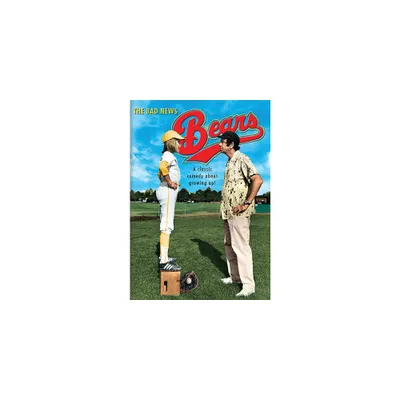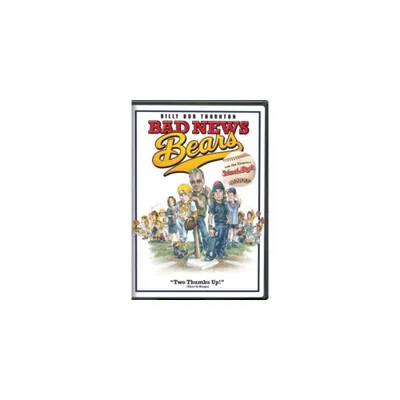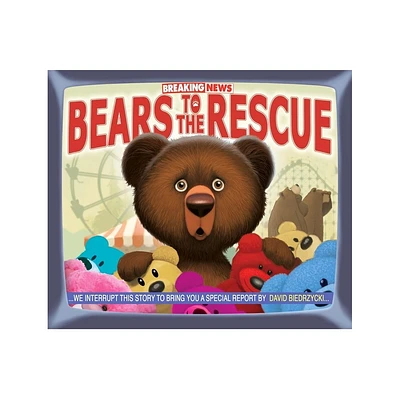Home
The Bad News Bears Breaking Training: A Novel Approach to Cinema
Loading Inventory...
Barnes and Noble
The Bad News Bears Breaking Training: A Novel Approach to Cinema
Current price: $14.95


Barnes and Noble
The Bad News Bears Breaking Training: A Novel Approach to Cinema
Current price: $14.95
Loading Inventory...
Size: Paperback
*Product Information may vary - to confirm product availability, pricing, and additional information please contact Barnes and Noble
In 1977,
The Bad News Bears in Breaking Training
had a moment in the sun. A glowing junk sculpture of American genressports flick, coming-of-age story, family melodrama, after-school special, road narrativethe film cashed in on the previous year’s success of its predecessor,
The Bad News Bears
. Arguing against the sequel’s dismissal as a cultural afterthought, Josh Wilker lovingly rescues from the oblivion of cinema history a quintessential expression of American resilience and joy.
Rushed into theaters by Paramount when the beleaguered film industry was suffering from acute sequelitis,” the (undeniably flawed) movie miraculously transcended its limitations to become a gathering point for heroic imagery drawn from American mythology. Considered in context, the film’s unreasonable optimism, rooted in its characters’ sincere desire to keep playing, is a powerful response to the political, economic, and social stresses of the late 1970s.
To Wilker’s surprise, despite repeated viewings,
continues to move him. Its huge heart makes it not only the ultimate fantasy of the baseball-obsessed American boy, but a memorable iteration of that barbed vision of pure sunshine itself, the American dream.
The Bad News Bears in Breaking Training
had a moment in the sun. A glowing junk sculpture of American genressports flick, coming-of-age story, family melodrama, after-school special, road narrativethe film cashed in on the previous year’s success of its predecessor,
The Bad News Bears
. Arguing against the sequel’s dismissal as a cultural afterthought, Josh Wilker lovingly rescues from the oblivion of cinema history a quintessential expression of American resilience and joy.
Rushed into theaters by Paramount when the beleaguered film industry was suffering from acute sequelitis,” the (undeniably flawed) movie miraculously transcended its limitations to become a gathering point for heroic imagery drawn from American mythology. Considered in context, the film’s unreasonable optimism, rooted in its characters’ sincere desire to keep playing, is a powerful response to the political, economic, and social stresses of the late 1970s.
To Wilker’s surprise, despite repeated viewings,
continues to move him. Its huge heart makes it not only the ultimate fantasy of the baseball-obsessed American boy, but a memorable iteration of that barbed vision of pure sunshine itself, the American dream.


















